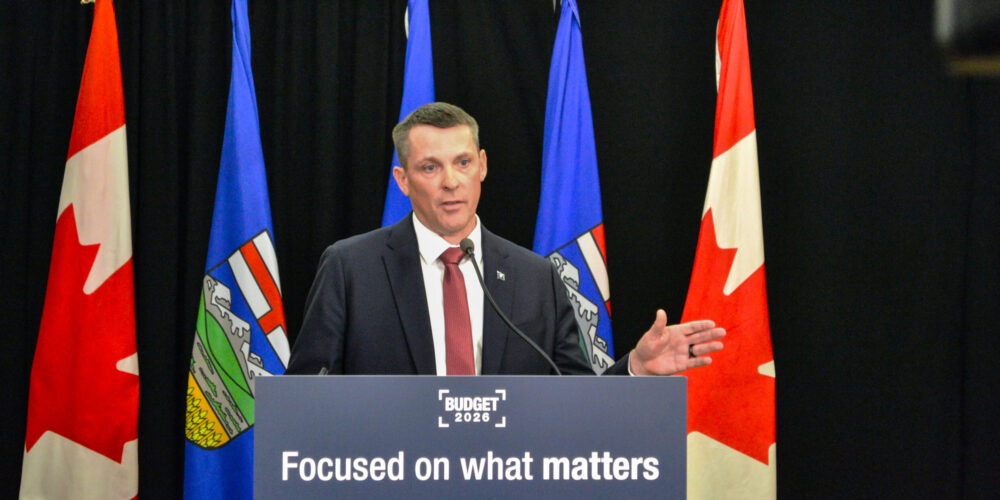 Christina Varvis
Christina VarvisIf a restaurant requires “sexualized and objectified servers” to sell food, maybe the food isn’t that good, four University of Alberta students say.
Kira Buro, Skylar Niehaus and Tempo Sabatier have served up F.E.D.U.P. YEG (or Feminist Eatery Database — Undercover Project), an online platform that highlights stereotypes and issues regarding sex, race and gender in the food service industry. The fourth member of the group has asked to remain anonymous, as she works in the industry. The project started in their Introduction to Women’s Studies class, where professor Cristina Stasia encouraged students to start a social media intervention to analyze social change as opposed to the traditional academic approach of writing a paper.
The topic of sexism and discrimination in the workplace, specifically regarding management, was being discussed in one of Stasia’s classes, where classmates shared their “horrific work situations.” That conversation of seemingly normalized discriminatory behaviour in the food industry led to the creation of F.E.D.U.P. YEG.
“We’ve noticed how a lot of it has gone unnoticed,” Buro said of the discrimination in the service industry. “It’s very typical for say, a dress code to be standard. We’re not against dress codes … (but) when it comes to forcing it on your employees, it’s kind of aggressive.”
F.E.D.U.P. YEG encourages servers and customers to share their anonymous testimonials and sexist encounters in the serving industry and voluntarily fill out an interactive checklist survey to review restaurants. The survey asks questions such as if the establishment has gender-neutral bathrooms, how diverse the staff is — in the lounge or bar area especially — and if there is a noticeable gender bias in the dress code. The surveys are tabulated, and “recommended” restaurants that receive “overwhelmingly positive” reviews are emphasized, along with restaurants that receive negative reviews.
Issues regarding the dress code, the social stigma that servers have to “look good” and the managerial and corporation’s assumption that “sex sells” are the most common types of submissions, Buro said.
One testimonial recalled how an interviewee wasn’t considered because she wouldn’t comply with the employer’s dress code.
“The interviewer looked at me and one of the first things he said was, ‘Every server here is required to work our yearly golf tournament and the required uniform for it is a bikini. Would you wear that?’ I wouldn’t and since it was a requirement of the server job the interview was ended,” the testimonial read.
Another testimonial acknowledged that “cute girls in short dresses” and “sex appeal” sells, but vented on how she was treated one night by a manger while working as the bartender.
“The manager comes over to me at the start of my shift and tells me to ‘hike up my shirt, pull my v-neck top down a little and apply a bit more make up … this will help you get more tips.’ I looked at him in disbelief! Did he really just say that to me! I never returned to work the next day.”
Buro said the blog gives servers a platform to share “behind the scene” and “off the book” stories those not in the industry might not know about.
“There’s a lot of stuff … being publicly shamed or harassed for not wearing makeup,” Buro said. “It creates an uncomfortable and negative environment for employees to be constantly worried about their appearance.
“The job of a server isn’t to look really great — it’s to serve food.”
Some might argue, “no one forces people into a working a serving job.” But that’s victim blaming, the girls say. Niehaus said the project hopes to change that perception.
“Everybody accepts it, and I think people in the food industry, (people) feel a lot of pressure to look a certain way,” she said. “Companies use a specific look or culture and they take advantage of that.”
Since the website’s debut last week, it has accumulated more than 26,000 web hits, with testimonials coming from outside the Edmonton area and from male servers as well.
Although the semester is drawing to a close, the four girls have considered keeping the project and further developing it beyond the school year. But for now, Niehaus said F.E.D.U.P. YEG is keeping tabs on the serving industry and their “shady” practices.
“People want to talk about it, but they’ve never been given the platform to talk,” Niehaus said. “We’re taking that hit for them, and it’s opened up a lot of conversation and that’s what our intention has been.”





“One testimonial recalled how an interviewee wasn’t considered because she wouldn’t comply with the employer’s dress code.”
shocking.
“We’re not against dress codes … (but) when it comes to forcing it on your employees, it’s kind of aggressive.”
then what’s the point of a dress code if you are not enforcing it lol?